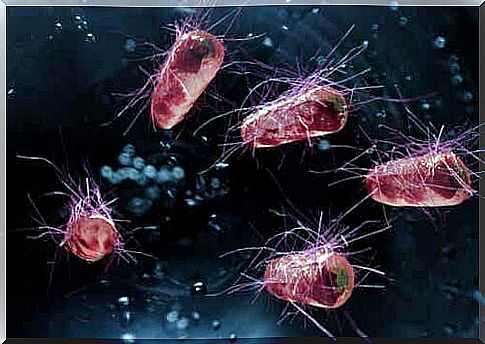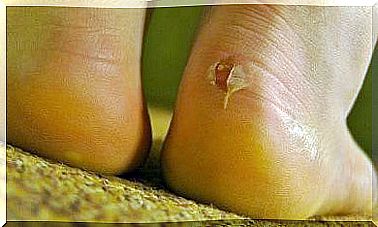Contagious Diarrhea: Everything You Should Know

Specialists define diarrhea as any thick or liquid stool that occurs three or more times a day. In addition to being a sign of a health problem, infectious diarrhea is also the second most common cause of death in low-income countries, according to the World Health Organization (WHO).
In Western countries, diarrhea is not usually a problem. In other areas, however, it can be fatal. Whatever you are here to gain knowledge or prevent, it is important to know about this disorder. In this article we will tell you everything you should know about infectious diarrhea.
What is contagious diarrhea?
As we have mentioned above, infectious diarrhea is categorized as liquid feces produced more than three times a day. According to studies, it is reduced to three or more within a period of 12 hours or at least one with blood, mucus or pus in in young children at the age of two years.
Pathogens cause infectious diarrhea if there is no other cause such as food poisoning or agitation in the gastrointestinal tract such as irritable bowel syndrome. Viruses, bacteria, protozoa (parasitic single-celled organisms), among other things, are also able to cause the disease.
In addition to the information of a medical nature, it is essential to contextualize infectious diarrhea on a global scale. The World Health Organization has provided us with a number of revealing data, among which we find the following:
- Diarrheal diseases are the second leading cause of death in children under the age of five worldwide.
- This means that around 525,000 young children die each year.
- It may be possible to prevent a significant proportion of cases with adequate health structures and appropriate food control.
- This disorder can cause severe malnutrition, loss of healthy years in life and in more severe cases death.

Causes of infectious diarrhea
As a scientific study cites, viruses, bacteria and protozoa cause infectious diarrhea along with certain more complex parasites. We will now briefly explain what each of these consists of.
Bacteria
Surprisingly , bacteria cause only between 10 and 20% of cases of infectious diarrhea. Among the most common enteropathogens we find the following: Shigella spp., Salmonella spp., Vibrio cholerae, Enterohemorrhagic E. coli, Aeromonas spp. and Yersinia enterocolitica.
It is worth mentioning the bacterium, Campylobacter jejuni, which is the fourth most common cause of diarrhea globally.
Vira
Many viruses cause diarrhea, including norovirus and rotavirus. They are the most commonly responsible for acute diarrhea. These episodes of thin stools caused by viruses are also known as viral gastroenteritis or stomach flu.
Protozoa and other parasites
Some protozoa present in water, such as Entamoeba histolytica or Giardia lamblia, can also cause infectious diarrhea. More complex parasites such as intestinal worms, scientifically known as Ascaris lumbricoldes, also lead to this type of disorder.
Primary methods of infection
Depending on which pathogen we look at, we can observe that the methods of infection are diverse and varied. For example, a virus is transmitted through microaerosols, which the infected person transmits – such as coughs and sneezes – while a bacterium usually has to be ingested through food.
How to prevent contagious diarrhea
As a basic rule mentioned by the Center for the Prevention and Control of Diseases (CDC), the best prevention to prevent contagious diarrhea is to sterilize surfaces in the kitchen, not to drink raw water and only eat food that has been prepared or pasteurized.
This is due to the fact that the microorganisms that we have quoted above are transmitted through direct contact with the mouth or by ingestion of water or certain foods.

What are other symptoms of infectious diarrhea?
In addition to liquid or thick stools, infectious diarrhea can be accompanied by other symptoms depending on what is causing it. According to the National Institute of Diabetes and Digestive and Kidney Disease (NIH), some accompanying clinical signs may be the following:
- Blood in the stool.
- Fever and chills.
- Dizziness.
- Vomiting.
- Pain and bloating in the abdomen.
Prevention through food
As you have seen in this article, many pathogens can cause infectious diarrhea: Bacteria, viruses, protozoa and other parasites. In most of the countries of the Western world, this condition does not pose a major problem, but in areas of low general sanitation it is the second most common cause of death.
The best prevention against diarrhea (excluding cases caused by viruses) is by avoiding consuming raw and inadequately prepared foods or foods that have been processed in an environment that has not been properly cleaned.









